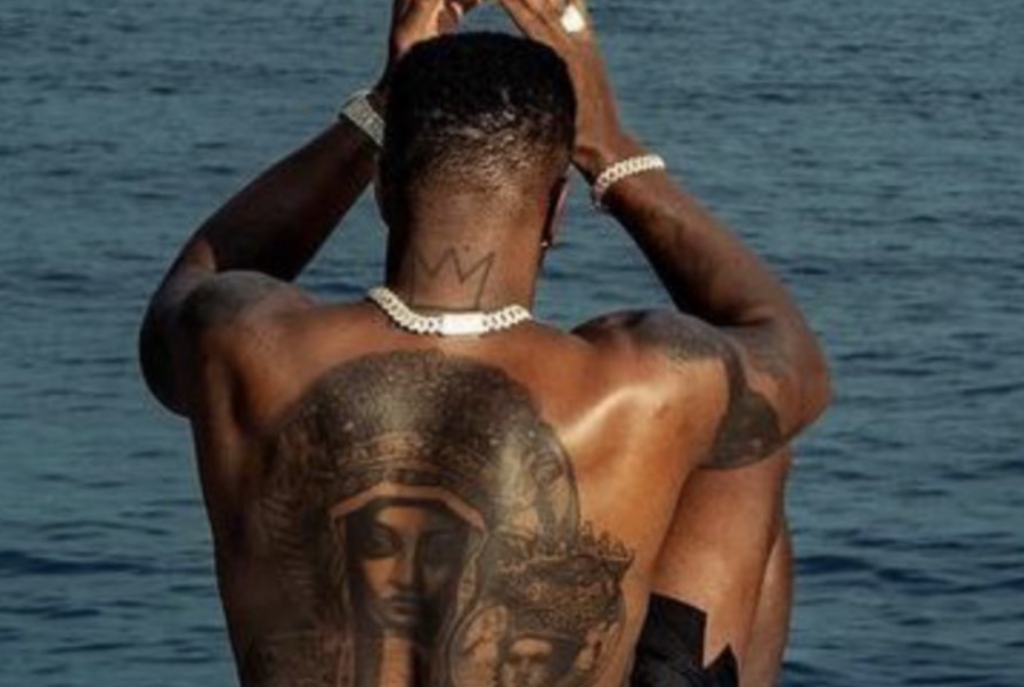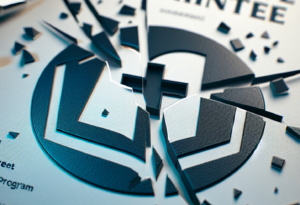Just as Evangelical “leaders” are busy advocating for Haitian Settler Colonialism in Springfield, Ohio, an unnoticed detail of Diddy’s body art provides a warning sign of a dangerous religious influence.
Daily, evangelicals working as Shepherds for Sale for globalist organizations seem to all get the same memos. And a popular talking point for them, since former President Trump highlighted the plight of (n)ative Americans in Springfield, Ohio, seems to be that the gospel requires the subjugation of American culture and communities to a mass-influx of Third World aliens. There is some resistance to their extra-biblical claims going on in social media, as many are beginning to point out that the Bible says no such thing.
However, Democrat-Evangelicals, who spent the last decade telling us they weren’t Democrats before doubling down in support of presidential candidate Kamala Harris, have been busy lecturing evangelicals on the matter. For example, in his piece in The Atlantic, Russell Moore warns that the residents of Springfield are probably lying about their plight related to their community’s occupation and their displacement, and whether or not evangelicals reject their testimony is a test of genuine Christianity.
All of the dialogue in evangelical circles seems to neglect the topic of Haitian religion and its influence in American communities. As Protestia previously explained, claims that Haitians are roughly two-thirds Catholic and one-third Protestant overlook the demographic and social statistics that – as one Haitian leader put it – “is yet 100% Vodou.” Practicing syncretism, the combining of two or more religions, Haitian religion is largely a combination of Roman Catholic tradition mixed with native Taino, Afro-Taino (largely from the Congo), and Santeria (with a slight dose of Free Masonry just for fun).
Leftists seem to not care about what kind of religion is being imported to rural and suburban America so long as their virtue can still be properly signaled. Their notion of America seems to be that of the United Methodist Church, “open minds, open hearts, open doors.” However, there is an important teachable moment in the daily news as it relates to pagan religion and one hot topic of the day: the arrest and prosecution of the music mogul known as “Diddy.”
Lost on some, but not on all, is the body art belonging to the R&B artist and its religious overtones. Consider, for example, the most prominent tattoo on his body.

While this photo from 2017 may appear, at first, to be a small detail etched in black ink, Diddy’s back is actually a shrine to a Haitian vodou entity named Ezili Dantor. Called a loa, or Lwa, Ezila Dantor is a “senior spirit force” among Haitians that is a symbol of sex, revelry, and eroticism. It’s actually a highly valued image among practitioners of Haitian Vodou.
Realization of sexual prowess is one of the gifts given through Ezili Dantor, it is believed. The Lithub website writes, “The beautiful femme queen, bull dyke, weeping willow, dagger mistress Ezili. Ezili is the name given to a pantheon of lwa who represent divine forces of love, s*xuality, prosperity, pleasure, maternity, creativity, and fertility. She’s also the force who protects ‘madivin’ and ‘masisi,’ that is, transmasculine and transfeminine Haitians.”
On Vodou imagery, Ezili Dantor is regularly pictured with daggers, with the image on Diddy’s back first appearing at a Haitian vodou celebration in the 18th Century, known as the Bwa Kayiman. Sometimes, her image is associated with the Haitian values of “revenge and retribution” and is often used in gang-affiliated activities.
The image is sometimes associated with venerated images of the “black madonna,” an African spin-off of the pagan Romanist myths of the Virgin Mary. However, the values and belief system associated with Ezili Dantor seem to be nothing like the historic or Catholic version of Jesus’ mother and are usually associated with sexual lasciviousness.
Evangelicals might want to start asking the question of exactly how much pagan religion can be imported into the United States and not have an effect on the nation’s moral fabric. As Diddy’s gross sins and egregious behavior have come to light, it seems as though Haitian Vodou culture has influenced at least one American negatively and probably countless more.
Interestingly to some, is that in the last half-century or so, the “melting pot” of American immigration has become – to much celebration – a “mosaic” that preserves the inferior religions and social customs of displaced societies. No doubt, maintaining pagan practices when coming to small-town America makes ministering in small-town America that much more difficult.
Timing of Diddy’s collapse and all that his rambunctious immorality entailed should be noted in the context of our current conversation about Haitian refugees. While we are to reach the world with the gospel, including the Third World nation of Haiti, it leaves evangelicals asking exactly how much of the peace and safety of our communities we are to sacrifice and how the unraveling of American society affects our missionary endeavors worldwide. Surely, with America weakened from within, our capacity and capability to endeavor in worldwide missions is hampered greatly. When we are in unrest due to cultural conflict, it makes it exceedingly difficult to unite the church around the goal of world missions – not to mention making our communities significantly less prosperous and safe for our children.






















